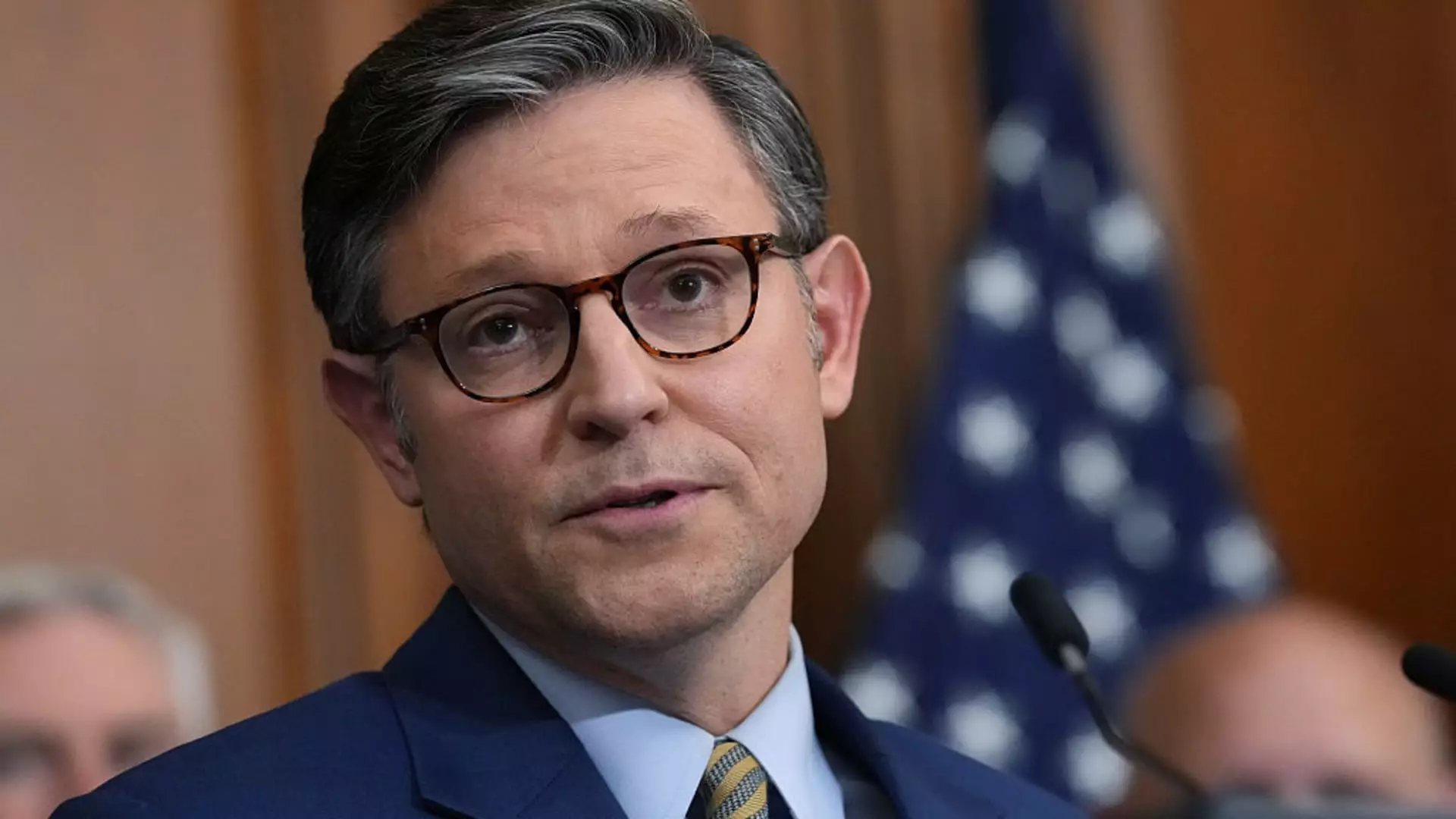In the evolving landscape of American politics, few topics are as polarizing as healthcare policy, particularly when it relates to programs like Medicaid that serve vulnerable populations. Recently, House Speaker Mike Johnson, R-La., defended sweeping budget cuts to Medicaid, promoting them as “common sense” reforms. However, the underlying implications of his argument merit scrutiny. By framing the cuts as a necessary enforcement of work requirements and bureaucratic procedures, Johnson invites a simplistic narrative that disregards the complexities of poverty, economic mobility, and the structural barriers faced by low-income Americans.
Johnson’s assertion that “4.8 million people will not lose their Medicaid unless they choose to do so” epitomizes a callous misunderstanding of the socioeconomic reality many Americans navigate. Imposing stringent work criteria—an 80-hour commitment per month—onto Medicaid recipients may seem intuitive in theory, but in practice, it risks exacerbating the very struggles these individuals face. The delusion that merely adding paperwork and conditions to an established safety net can be deemed “minor enforcement” neglects the sheer bureaucratic weight these individuals must bear.
The Myth of “Common Sense”
The idea that these policies embody common sense arrives steeped in political rhetoric rather than compassionate governance. Johnson’s comments imply a shared understanding among Americans about the benefits of these requirements, yet they fail to consider the real-life challenges many recipients encounter. These are often individuals juggling multiple jobs, family responsibilities, or personal hardships—making the assumption that they can simply “choose” to be more industrious not only misdiagnoses the problem but also disregards their humanity.
The tone adopted by Johnson suggests that failure to comply with these stringent requirements arises from a lack of desire or commitment rather than societal barriers. For instance, when Johnson claims he’s “not buying” the argument about cumbersome paperwork, he reveals a disconnect between political discourse and the everyday realities of working-class Americans. Such views cultivate an adversarial relationship between policymakers and the very populations intended to be served, further ostracizing individuals who rely on government assistance.
The Political Fallout and Public Response
The pushback that Johnson and fellow Republicans are experiencing, both in town halls and across the media, speaks volumes about the disconnect between their policies and public sentiment. The backlash faced by representatives like Mike Flood and Ashley Hinson—who were met with boos when discussing support for the bill—is telling. Their constituents are not merely rejecting the policy but are also signaling a desire for leadership rooted in empathy over ideology.
As the fallout unfolds, influential voices within the Republican party, such as Sen. Josh Hawley, are cautioning against these harsh measures, labeling them “morally wrong and politically suicidal.” The emergence of dissent within their ranks serves as a warning sign: policies that undermine the welfare of the working poor threaten not just the individuals impacted but the party’s greater electoral viability. The crux of this fight lies in the ongoing struggle for the soul of a party that must reckon with the real consequences of its legislative agenda.
Compassion Versus Compliance
What is predominantly glaring in this discourse is the conflation of compassion with compliance. Opponents of the cuts, including Democrats like Sen. Raphael Warnock, have articulated a startling truth—that the stricter requirements ultimately do not incentivize work; rather, they effectively sever the safety net for those who most desperately need it. These provisions act as barriers, not bridges, to economic stability and well-being. As the uninhibited push for cuts persists, it is essential to advocate for policies that don’t merely mandate work but actively support individuals on their paths to self-sufficiency.
Johnson’s confidence in surmounting these political challenges, predicting a seamless passage to the Senate, reflects an archaic view of governance—where economic orthodoxy overshadows the ethical responsibilities that leaders bear to their constituencies. Reforming social programs for efficiency should never eclipse the moral imperative to care for those in need. As this contentious debate evolves, it is crucial to highlight that the fight over Medicaid isn’t just political strategy; it has real-world implications that affect lives, particularly those who are already marginalized.
The ongoing discussion surrounding these cuts serves as an urgent wake-up call—a reminder that policy cannot merely exist in a vacuum but must be intertwined with the lived experiences of those it impacts. As America watches this unfold, it must demand a re-evaluation of what “common sense” truly means when it comes to caring for its most vulnerable populations.



Leave a Reply